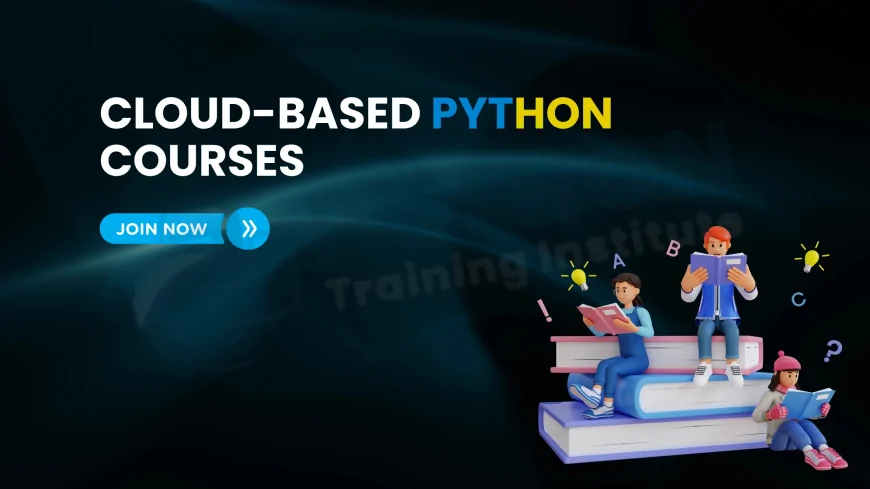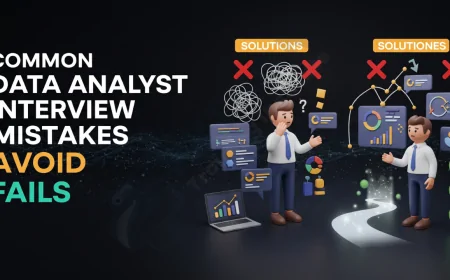Cloud-Based Python Training Programs Pune | Python Training Courses on Cloud Platforms in Pune
Explore top cloud-based Python training programs in Pune. Learn Python, AWS, Azure, GCP, DevOps, serverless, Docker, and real-world projects. Ideal for freshers and professionals seeking career-ready skills with certification and placement support.

Table of Contents
- 1. Introduction
- 2. Why Learn Cloud-Based Python?
- 3. Core Modules in Cloud Python Courses
- 4. Major Cloud Platforms Covered (AWS, Azure, GCP)
- 5. DevOps & CI/CD Integration
- 6. Serverless Python & Containers
- 7. Real-Time Projects & Capstone Work
- 8. Top Institutes Offering Cloud-Based Python in Pune
- 9. Learning Modes: Classroom, Live Online & Hybrid
- 10. Skills & Career Outcomes
- 11. Fees, Duration & Certification Paths
- 12. Industry Demand & Salary Insights
- 13. Future Trends in Cloud Python Development
- 14. Frequently Asked Questions (FAQs)
- 15. Conclusion
1. Introduction
Pune’s vibrant tech ecosystem—spanning multinational IT giants, ambitious startups, and world-class educational institutions—has rapidly embraced cloud computing. As organizations migrate workloads to AWS, Microsoft Azure, and Google Cloud Platform (GCP), the demand for developers who can code in Python and deploy cloud-native solutions has soared. Cloud-based Python training programs address this dual need, helping learners master Python fundamentals while gaining practical expertise in cloud infrastructure, DevOps pipelines, serverless architectures, and containerization.
2. Why Learn Cloud-Based Python?
- Versatility: Python is equally at home in backend development, data engineering, automation, and AI/ML workloads.
- Cloud Readiness: Every major cloud vendor ships SDKs, CLI tools, and serverless runtimes optimized for Python.
- Faster Time-to-Market: Sleek syntax + managed cloud services ⇒ rapid prototyping and deployment.
- Career Acceleration: Cloud + Python skills unlock roles like Cloud Developer, DevOps Engineer, and Data Engineer.
- Cost Efficiency: Serverless and pay-as-you-go models reduce infrastructure costs for startups and enterprises alike.
3. Core Modules in Cloud Python Courses
- Python Essentials: Data types, functions, OOP, error handling, virtual environments.
- Python Networking & APIs: REST, GraphQL, requests, FastAPI.
- Infrastructure Fundamentals: VPCs, subnets, IAM roles, container registries.
- Infrastructure as Code (IaC): Terraform or AWS CloudFormation with Python hooks.
- Observability: Logging, monitoring (CloudWatch, Azure Monitor, Stackdriver).
4. Major Cloud Platforms Covered (AWS, Azure, GCP)
While most Pune institutes start with AWS due to its market share, quality programs include multi-cloud exposure:
| Cloud Provider | Python SDK | Key Services in Curriculum |
|---|---|---|
| AWS | Boto3 | EC2, S3, Lambda, API Gateway, DynamoDB, ECS Fargate |
| Microsoft Azure | azure-sdk-for-python | Azure Functions, App Service, Cosmos DB, AKS |
| Google Cloud | google-cloud-python | Cloud Run, Cloud Functions, BigQuery, Pub/Sub |
5. DevOps & CI/CD Integration
Rapid, reliable deployments hinge on automated pipelines. Cloud-Python courses typically teach:
- Git & GitHub Actions for unit tests, linting, and container builds.
- Jenkins + Docker pipelines for multi-stage deployments.
- AWS CodePipeline / Azure DevOps / Google Cloud Build for managed CI/CD.
6. Serverless Python & Containers
Serverless lets developers run code without managing servers:
- Hands-on labs deploying
handler.pyon AWS Lambda or Azure Functions. - Event-driven architectures—using SNS/SQS, Event Grid, Pub/Sub.
- Containerizing Python apps with Docker, pushing to ECR / ACR / GCR, and orchestrating via Kubernetes (EKS/AKS/GKE).
7. Real-Time Projects & Capstone Work
Robust programs emphasize portfolio-worthy projects:
- Data Pipeline: Python ETL ingesting data into S3 → processing via AWS Glue → visualizing in QuickSight.
- AI Chatbot: FastAPI backend deployed on GCP Cloud Run, integrating Dialogflow.
- IoT Dashboard: Device telemetry stored in Azure Cosmos DB, displayed via Dash/Plotly.
- Serverless e-Commerce API: Lambda + API Gateway + DynamoDB + JWT auth.
8. Top Institutes Offering Cloud-Based Python in Pune.
- WebAsha Technologies – Fast-track cloud-native Python + serverless specialization.
9. Learning Modes: Classroom, Live Online & Hybrid
Busy professionals may prefer Saturday-Sunday classroom sessions in Kharadi or Hinjawadi; students often pick live-online evenings. Some institutes record every lecture and provide lifetime LMS access—ideal for revision.
10. Skills & Career Outcomes
- Python 3.x proficiency & PEP 8 best practices.
- Cloud architecture design for scalable apps.
- Coding & deploying REST/GraphQL APIs.
- Implementing CI/CD, Terraform, Docker.
- Troubleshooting latency, cost, and security on cloud.
Graduates land roles such as Cloud Python Developer, DevOps Engineer, Site Reliability Engineer (SRE), or Data Engineer.
11. Fees, Duration & Certification Paths
| Program Type | Typical Duration | Fee Range (INR) | Certifications Aligned |
|---|---|---|---|
| Crash Bootcamp | 4–6 weeks | ₹12k – ₹18k | PCAP + AWS Cloud Practitioner |
| Comprehensive Diploma | 12–16 weeks | ₹35k – ₹55k | AWS Developer Associate | Azure Fundamentals |
| Post-Graduate Program | 6–9 months | ₹85k – ₹1.2 L | AWS DevOps Pro | GCP Associate Cloud Engineer |
12. Industry Demand & Salary Insights
According to recent Pune hiring data (2025 Q1):
- 800+ active listings for “Python Developer (AWS)”
- Average entry-level package: ₹4.5 LPA; mid-level (3–5 yrs): ₹8–12 LPA
- FinTech, SaaS, and IoT startups in Baner & Balewadi lead hiring.
13. Future Trends in Cloud Python Development
- Edge Computing: AWS Greengrass & Azure IoT Edge with Python.
- ML Ops: Automated model deployment pipelines using SageMaker + Kubernetes.
- Green Cloud: Energy-efficient Python workloads and carbon-aware scheduling.
- Zero-trust Security: Python libraries for confidential computing and policy-as-code.
14. Frequently Asked Questions (FAQs)
1. What is cloud-based Python training?
Cloud-based Python training teaches Python programming along with cloud computing technologies like AWS, Azure, and Google Cloud Platform, enabling learners to develop and deploy Python applications on the cloud.
2. Who can benefit from cloud-based Python training programs?
Beginners, IT professionals, software developers, data scientists, and anyone interested in combining Python skills with cloud technologies can benefit from these programs.
3. What are the prerequisites for joining a cloud-based Python course?
Basic knowledge of programming is helpful, but many courses start with Python fundamentals before advancing to cloud concepts. Familiarity with Linux commands and networking basics is a plus.
4. Which cloud platforms are covered in these training programs?
Most courses cover popular platforms like Amazon Web Services (AWS), Microsoft Azure, and Google Cloud Platform (GCP).
5. What Python libraries are commonly used in cloud computing?
Libraries such as Boto3 (for AWS), Flask or Django (for web apps), Pandas, NumPy, and requests are commonly used in cloud-based Python development.
6. How does cloud-based Python training help in career growth?
It equips learners with in-demand skills, opening job opportunities in cloud development, DevOps, backend engineering, and data engineering sectors.
7. Do these courses include hands-on projects?
Yes, most programs emphasize practical experience with real-world projects, including cloud deployments, serverless applications, and automation scripts.
8. Is certification provided after completing the training?
Yes, most institutes provide certificates upon successful completion, which can boost your resume and LinkedIn profile.
9. Can I attend cloud-based Python courses online?
Yes, many institutes offer live online classes, self-paced videos, and hybrid formats suitable for remote learners.
10. How long does a typical cloud-based Python training program last?
Course durations vary from 2 to 6 months depending on the syllabus, pace, and level of depth.
11. What are the popular job roles after completing cloud Python training?
Common roles include Cloud Developer, Backend Engineer, DevOps Engineer, Data Engineer, and Cloud Automation Specialist.
12. Are internships or placement assistance provided?
Many training centers offer internship opportunities and placement support through tie-ups with IT companies in Pune and beyond.
13. What is the difference between cloud-based and traditional Python courses?
Cloud-based courses focus on integrating Python with cloud services, covering cloud architecture, deployment, and management, unlike traditional courses that focus mainly on Python programming basics.
14. Do I need a cloud account to practice during the course?
Most courses guide you to create free-tier accounts on AWS, Azure, or GCP to practice hands-on cloud tasks at no extra cost.
15. What tools and platforms are used for cloud Python training?
Popular tools include AWS Management Console, Azure Portal, Google Cloud Console, Docker, Kubernetes, and various IDEs like PyCharm and VS Code.
16. How is Python used in DevOps on the cloud?
Python scripts automate cloud infrastructure provisioning, deployment pipelines, monitoring, and configuration management in DevOps workflows.
17. Can I learn cloud security basics in these courses?
Yes, many programs include cloud security fundamentals, best practices, and how to secure Python applications on the cloud.
18. Are cloud certifications like AWS Certified Developer covered?
Some courses provide preparation for cloud certifications such as AWS Certified Developer Associate, complementing Python skills.
19. What is serverless computing in relation to Python?
Serverless computing allows running Python functions without managing servers, using cloud services like AWS Lambda, enabling scalable and cost-efficient applications.
20. How can I choose the best cloud-based Python training in Pune?
Look for experienced trainers, hands-on project focus, certification, placement assistance, positive reviews, and up-to-date syllabus aligned with industry standards.
15. Conclusion
Pune’s cloud-based Python training programs blend coding fundamentals with hands-on cloud engineering, making graduates immediately valuable to employers. By mastering Python, cloud services, serverless, and DevOps automation, you position yourself at the forefront of modern software development. Choose a program that offers robust projects, multi-cloud exposure, and strong placement support to accelerate your tech career.
What's Your Reaction?
 Like
0
Like
0
 Dislike
0
Dislike
0
 Love
0
Love
0
 Funny
0
Funny
0
 Angry
0
Angry
0
 Sad
0
Sad
0
 Wow
0
Wow
0














